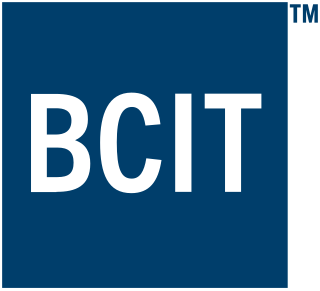Related Research Articles

Apprenticeship is a system for training a new generation of practitioners of a trade or profession with on-the-job training and often some accompanying study. Apprenticeships can also enable practitioners to gain a license to practice in a regulated occupation. Most of their training is done while working for an employer who helps the apprentices learn their trade or profession, in exchange for their continued labor for an agreed period after they have achieved measurable competencies.

Princess Alice, Countess of Athlone was a member of the British royal family. She was one of the longest-lived British royals. Princess Alice was the chatelaine of Rideau Hall in Ottawa from 1940 until 1946, while her husband Alexander Cambridge, 1st Earl of Athlone, served as Governor General of Canada.

Major-General Alexander Cambridge, 1st Earl of Athlone, was a member of the extended British royal family, as a great-grandson of George III, a brother of Queen Mary and husband of Princess Alice, Countess of Athlone. He was a British Army commander, who served as Governor-General of the Union of South Africa and Governor General of Canada.

The Royal Military College (RMC), founded in 1801 and established in 1802 at Great Marlow and High Wycombe in Buckinghamshire, England, but moved in October 1812 to Sandhurst, Berkshire, was a British Army military academy for training infantry and cavalry officers of the British and Indian Armies.

The Institution of Civil Engineers (ICE) is an independent professional association for civil engineers and a charitable body in the United Kingdom. Based in London, ICE has over 92,000 members, of whom three-quarters are located in the UK, while the rest are located in more than 150 other countries. The ICE aims to support the civil engineering profession by offering professional qualification, promoting education, maintaining professional ethics, and liaising with industry, academia and government. Under its commercial arm, it delivers training, recruitment, publishing and contract services. As a professional body, ICE aims to support and promote professional learning, managing professional ethics and safeguarding the status of engineers, and representing the interests of the profession in dealings with government, etc. It sets standards for membership of the body; works with industry and academia to progress engineering standards and advises on education and training curricula.
A fellow is a concept whose exact meaning depends on context. In learned or professional societies, it refers to a privileged member who is specially elected in recognition of their work and achievements. Within the context of higher educational institutions, a fellow can be a member of a highly ranked group of teachers at a particular college or university or a member of the governing body in some universities; it can also be a specially selected postgraduate student who has been appointed to a post granting a stipend, research facilities and other privileges for a fixed period in order to undertake some advanced study or research, often in return for teaching services. In the context of research and development-intensive large companies or corporations, the title "fellow" is sometimes given to a small number of senior scientists and engineers. In the context of medical education in North America, a fellow is a physician who is undergoing a supervised, sub-specialty medical training (fellowship) after having completed a specialty training program (residency).

An engineering technologist is a professional trained in certain aspects of development and implementation of a respective area of technology. An education in engineering technology concentrates more on application and less on theory than does an engineering education. Engineering technologists often assist engineers; but after years of experience, they can also become engineers. Like engineers, areas where engineering technologists can work include product design, fabrication, and testing. Engineering technologists sometimes rise to senior management positions in industry or become entrepreneurs.

The British Columbia Institute of Technology, is a public polytechnic institute in Burnaby, British Columbia. The technical institute has five campuses located in the Metro Vancouver region, with its main campus in Burnaby, British Columbia, Canada. There is also the Aerospace Technology Campus in Richmond, the Marine Campus in the City of North Vancouver, Downtown campus in Vancouver, and Annacis Island Campus in Delta. It is provincially chartered through legislation in the College and Institute Act. The school operates as a vocational and technical school, offering apprenticeships for the skilled trades and diplomas and degrees in vocational education for skilled technicians and workers in professions such as engineering, accountancy, business administration, broadcast/media communications, digital arts, nursing, computing, medicine, architecture, and law.
An engineer's degree is an advanced academic degree in engineering which is conferred in Europe, some countries of Latin America, North Africa and a few institutions in the United States. The degree may require a thesis but always requires a non-abstract project.

The American Society for Engineering Education (ASEE) is a non-profit member association, founded in 1893, dedicated to promoting and improving engineering and engineering technology education. The purpose of ASEE is the advancement of education in all of its functions which pertain to engineering and allied branches of science and technology, including the processes of teaching and learning, counseling, research, extension services and public relations. ASEE administers the engineering technology honor society Tau Alpha Pi.
The Doctor of Engineering is a professional doctorate in engineering and applied science. An EngD is a terminal degree similar to a PhD in engineering but applicable more in industry rather than in academia. The degree is usually aimed toward working professionals.
Integrated Engineering is a multi-disciplinary, design-project-based engineering degree program.

Nikola Vaptsarov Naval Academy (NVNA) is the oldest technical educational institution in the Republic of Bulgaria. Its history, past and present achievements establish the institution as the most prestigious centre for training maritime specialists in the country. Its development over the years resembles a navigable river, into which many tributaries flow, as well as the "prototypes" of the present-day faculties, departments, and vocational colleges constituting the Nikola Vaptsarov Naval Academy.
The Central Institute of Fisheries Nautical and Engineering Training (or CIFNET) formerly known as the Central Institute of Fisheries Operatives, is a marine studies centre located at Kochi, India. Maintained by the Department of Fisheries and Animal Husbandry and Dairying of the Government of India, the institute was set up to aid research and development in the field.


Engineering education is the activity of teaching knowledge and principles to the professional practice of engineering. It includes an initial education, and any advanced education and specializations that follow. Engineering education is typically accompanied by additional postgraduate examinations and supervised training as the requirements for a professional engineering license. The length of education, and training to qualify as a basic professional engineer, is typically five years, with 15–20 years for an engineer who takes responsibility for major projects.

RCC Institute of Technology(RCC) was founded as the Radio College of Canada in 1928, making it one of the oldest private technology institutions in Canada. It is also the only private educational institute in Ontario to be approved by the Ministry of Training, Colleges and Universities to grant bachelor's degrees. In 2018, Yorkville University acquired RCC Institute of Technology. It was amalgamated with Yorkville to become Yorkville University/Ontario.
The Engineering Institute of Canada (EIC) is a federation of fourteen engineering societies based in Canada, covering a broad range of engineering branches, and with a history going back to 1887. First known as the Canadian Society of Civil Engineers, it became the first national professional engineering society in Canada.
Frank Thomas Matthews White (1909–1971) was an Australian mining and metallurgical engineer and mineral science educator. His career included appointments in Australia, Fiji, Malaya, and Canada.
References
- ↑ Abbott, W. (June 1, 1953). "The Athlone Fellowship Scheme for the Practical Training in Industry of Canadian Engineering Graduates in Great Britain". Proceedings of the Institution of Mechanical Engineers. 167 (1): 258–274. doi:10.1243/pime_proc_1953_167_033_02. ISSN 0020-3483.
- ↑ "1957 Obituary - Alexander Augustus Frederick William Alfred George Cambridge -". Grace's Guide to British Industrial History. Retrieved June 17, 2020.
- ↑ Office of the Governor General of Canada. "Governor General > Former Governors General > Major General The Earl of Athlone". Queen's Printer for Canada. Archived from the original on February 11, 2009.
- ↑ "The Athlone Fellowship Scheme for the Practical Training in Industry of Canadian Engineering Graduates in Great Britain". Journal of the Institution of Electrical Engineers. 1953 (9): 294–295. September 1, 1953. doi:10.1049/jiee-2.1953.0190.
- 1 2 3 4 The Althone Fellowships. "Newsletter No. 16" (PDF). Retrieved June 15, 2020.